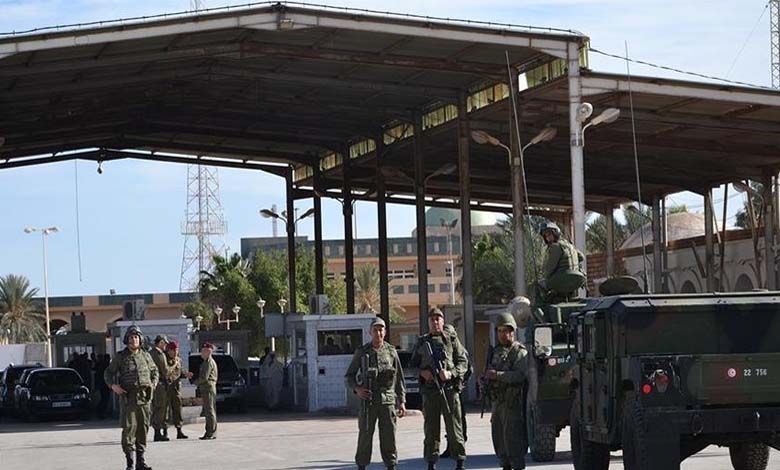Libya Thwarts a Major Terrorist Plot near the Tunisian Border

The security operation led to the arrest of all members of the terrorist group and uncovered their plan to recruit new elements via social media and distribute inciting leaflets inside mosques.
Libya’s Internal Security Agency, under the outgoing Government of National Unity, has dismantled a banned terrorist organization known as the Jihadist Resistance Movement “Nasr.” The group had been preparing a series of terrorist attacks targeting critical security and military institutions in the country, amid ongoing corruption, political divisions, and the continued support for armed factions over the years.
-
Consecutive Security Successes: Tunisia Arrests 20 Terrorists since the Start of 2025
-
Many Points of Convergence between the Muslim Brotherhood and Terrorist Organizations: Find Out More
According to the Internal Security Agency, the organization used a deceptive symbolic name to mislead and recruit individuals. It relied on extremist propaganda, distributing inflammatory leaflets aimed at mobilizing and recruiting new members in preparation for targeting key military and security sites.
The security operation resulted in the arrest of all members of the organization and exposed their destructive plans, which included recruiting members through social media, distributing inciting leaflets in mosques, and attempting to contact foreign entities to learn how to manufacture explosives and drones.
-
Tunisians Prepare for a Phase of “Construction and Development” Amid Calls for Political Calm
-
Tunisian Brotherhood: Conspiracies to “Reposition” Before Presidential Elections
Investigations also revealed the group’s intention to establish a secret weapons and explosives factory in the Al-Jumayl area, near the Tunisian border. Documents found confirm their efforts to acquire land for this purpose. The cell had reached an advanced stage in its planning, successfully establishing contacts with external elements to secure logistical support, including the procurement of explosives and sophisticated drones intended for reconnaissance of targeted sites.
Border security remains a critical issue in Libya, a country facing waves of irregular migrants and the presence of terrorist organizations, raising concerns among Western powers, particularly in Southern Europe.
-
A Muslim Brotherhood Defector Reveals the Terrorist Group’s Plans to Exploit the Palestinian Cause for Their Own Goals
-
The terrorist Muslim Brotherhood… Anger in Libya, division in Tunisia, and disregard in Mauritania
In early March, the United Nations Support Mission in Libya announced an agreement to establish a specialized research center focused on border security, jointly operated by military forces from both eastern and western Libya.
The Tunisia-Libya border presents a significant security challenge due to its length and difficult terrain, facilitating smuggling and infiltration operations. Terrorist groups have taken advantage of Libya’s instability to establish a foothold and plan attacks in the region.
-
Questioning the legitimacy of parliament… Ghannouchi dreams of returning to power despite the Tunisian parliament being in session
-
Tunisian analyst: Restoring the spirit of democracy can only be achieved by fighting corruption
In September, Tunisian authorities extended the buffer zone along its borders with Libya and Algeria for another year, covering the country’s southern, southeastern, and western regions. This measure aims to prevent terrorists and extremists from infiltrating Tunisian territory. Despite successful operations dismantling sleeper terrorist cells and thwarting numerous attacks, Tunisian authorities maintain that the terrorist threat remains present.
Since the overthrow of Muammar Gaddafi in 2011, Libya has been plagued by continuous political and armed conflicts, leading to a country divided between two rival governments. The United Nations and the international community are striving to stabilize Libya through political dialogue and efforts to unify the country’s security and military institutions.












